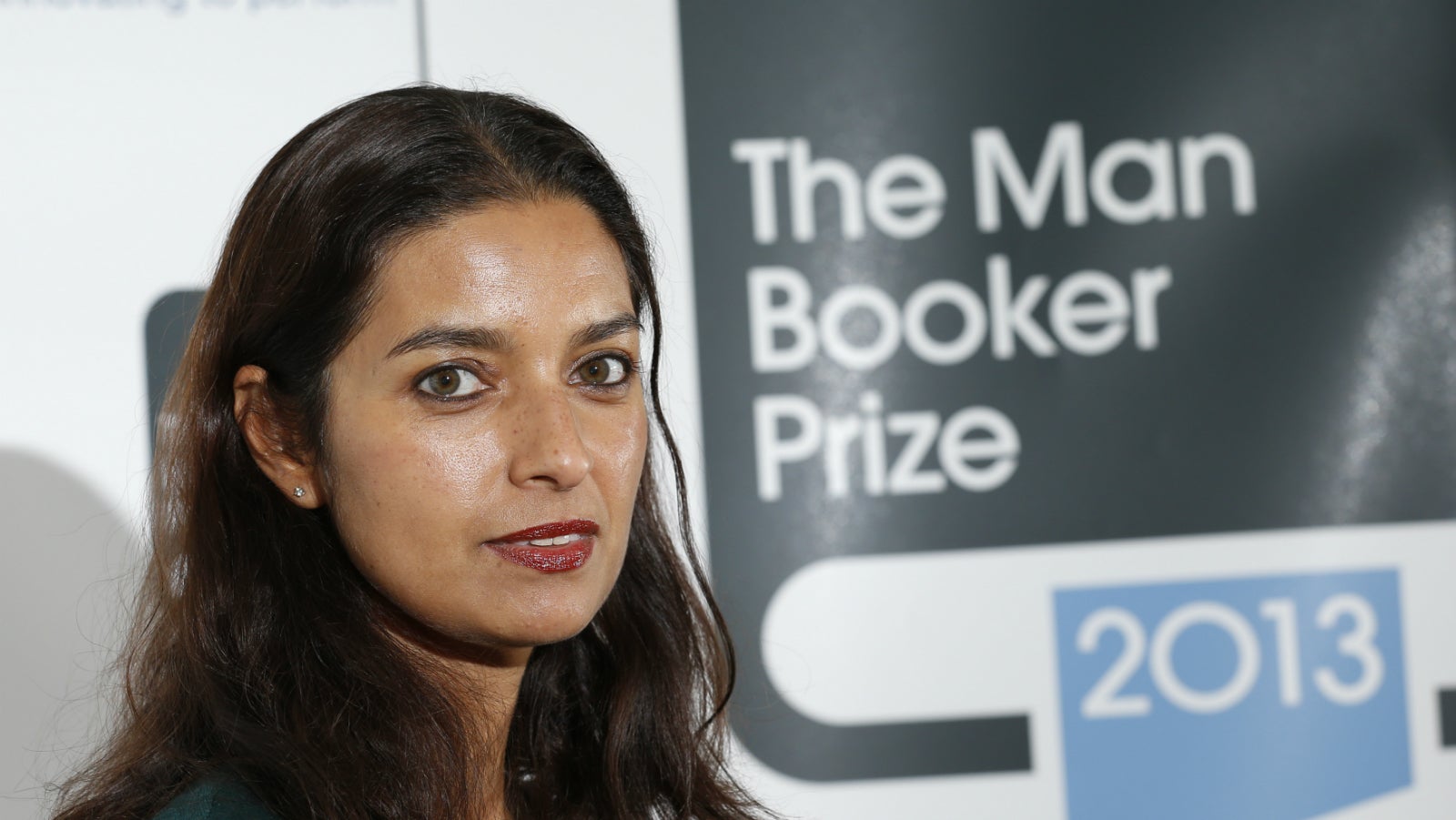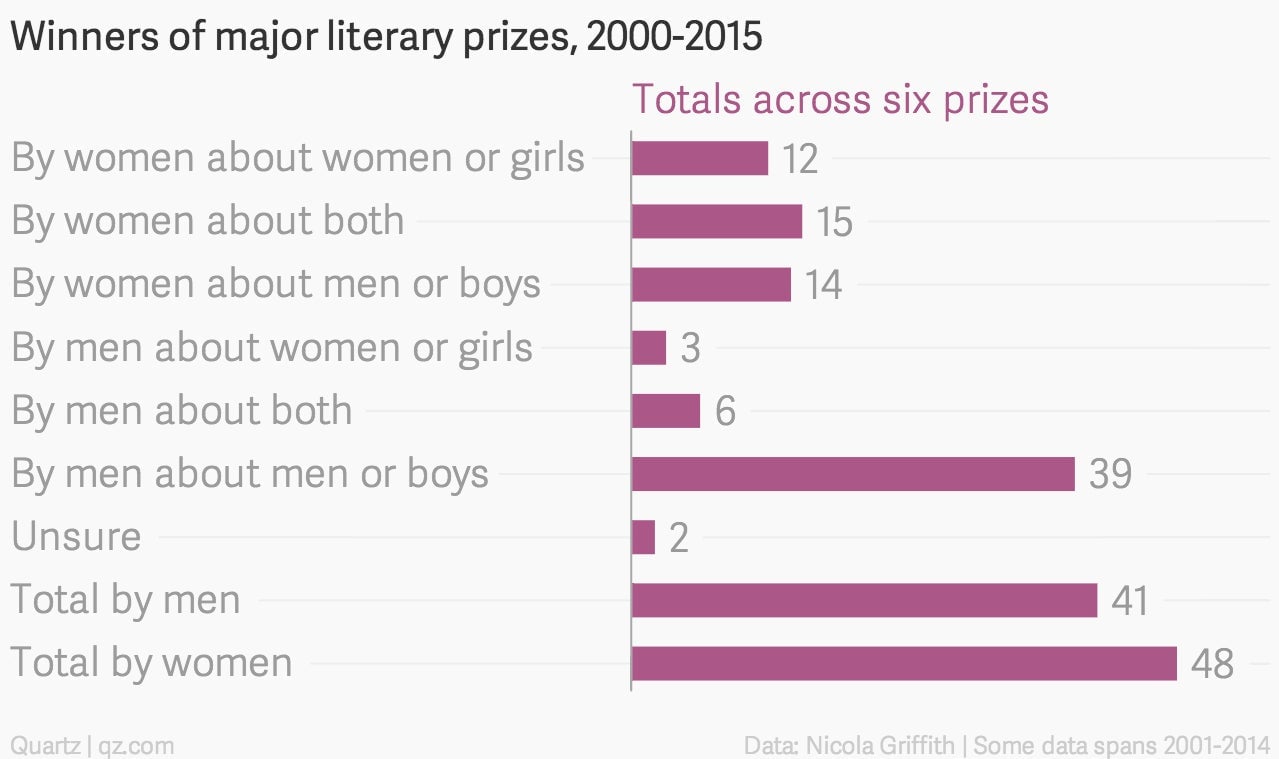There’s a gender gap in prize-winning literature—not between the authors, but the characters
The number of major literary prizes won by female writers over the last 15 years is—perhaps surprisingly—only slightly smaller than the number won by men. But a deep gender disparity emerges when you look at the winning authors’ main characters.


The number of major literary prizes won by female writers over the last 15 years is—perhaps surprisingly—only slightly smaller than the number won by men. But a deep gender disparity emerges when you look at the winning authors’ main characters.
A new analysis by the novelist Nicola Griffith shows that novels in which the main character is female have won far fewer prizes than novels in which the main character is male. And the more prestigious the award, the greater the imbalance, says Griffith, who notes that from 2000 to 2015, “not a single book-length work from a woman’s perspective or about a woman was considered worthy” of a Pulitzer Prize.
Of the six female authors to win a Pulitzer between 2000 and 2015, half wrote primarily from the perspective of male characters; the other half gave voice to male and female characters equally. These included, as just one example, Jennifer Egan’s 2011 winner A Visit From the Goon Squad, in which the author dips masterfully into the lives of many characters, some female, some male, old, young, from the past, and even in the future. The novel could not be said to be primarily about women or men—whereas the male authors who won Pulitzers wrote almost exclusively from the perspective of male characters.
In fact, what is most striking in the data Griffith collected is the diversity within women’s fiction compared to that of men, who wrote 39 out of 48 books exclusively about male characters. (Griffith’s data, which starts in either 2000 or 2001 and ends in 2014 or 2015 depending on the prize, covers the Pulitzer, the Man Booker Prize, the National Book Award, National Book Critics Circle Award, Hugo Award and Newbery Medal recognitions).

In the period 2000-2015, 41 prizes were won by women and 48 by men—a disparity, yes, but far less than the one that exists between the prize-winning books that can be said to have a male-driven narrative versus a female one.
Anecdotally, it’s hard to argue that the world’s greatest novels, whether by men or women, are skewed away from a female perspective (though an analysis might prove otherwise). Books like Anna Karenina, Jane Eyre, Clarissa, Mrs. Dalloway, To Kill a Mockingbird, The God of Small Things, The Portrait of a Lady, and The Handmaid’s Tale offer some of art’s richest depictions of the lives of girls and women across centuries and cultures.
But it’s also hard to argue with Griffith’s findings of a bias, at least in recent years, toward novels about male characters (after Hilary Mantel won her second Man Booker Prize, for Bring Up the Bodies in 2012, her agent noted that she began to do well, in part, because she’d begun to center her books on male characters).
Perhaps the judges of literary prizes ought to examine more carefully what they like, and why. The important thing is that women authors should be respected and rewarded on an equal footing with men, whatever the gender of the characters they create and entrust with telling their narrative.